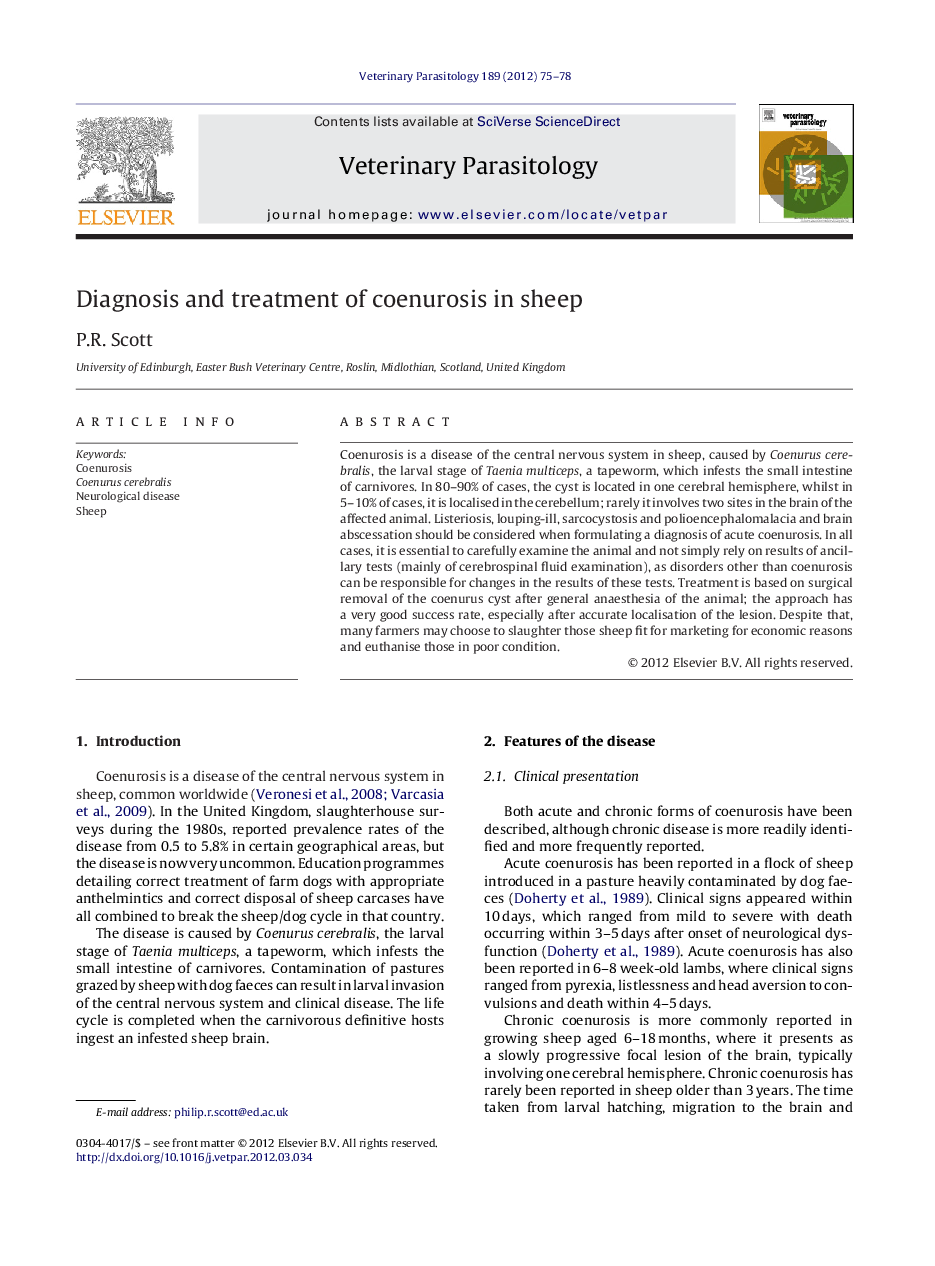| Article ID | Journal | Published Year | Pages | File Type |
|---|---|---|---|---|
| 2470178 | Veterinary Parasitology | 2012 | 4 Pages |
Coenurosis is a disease of the central nervous system in sheep, caused by Coenurus cerebralis, the larval stage of Taenia multiceps, a tapeworm, which infests the small intestine of carnivores. In 80–90% of cases, the cyst is located in one cerebral hemisphere, whilst in 5–10% of cases, it is localised in the cerebellum; rarely it involves two sites in the brain of the affected animal. Listeriosis, louping-ill, sarcocystosis and polioencephalomalacia and brain abscessation should be considered when formulating a diagnosis of acute coenurosis. In all cases, it is essential to carefully examine the animal and not simply rely on results of ancillary tests (mainly of cerebrospinal fluid examination), as disorders other than coenurosis can be responsible for changes in the results of these tests. Treatment is based on surgical removal of the coenurus cyst after general anaesthesia of the animal; the approach has a very good success rate, especially after accurate localisation of the lesion. Despite that, many farmers may choose to slaughter those sheep fit for marketing for economic reasons and euthanise those in poor condition.
